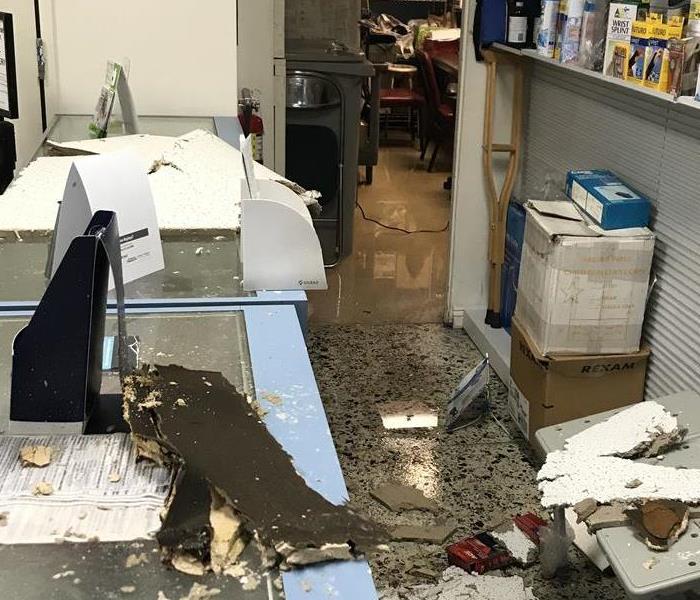Commercial Water Loss Renters Insurance Common Questions
1/17/2018 (Permalink)
Commercial water losses can be confusing for the renter. Who is responsible for what types of damage? The renter or the property owner?
Some of the more common water damage-related scenarios a tenant might face are: Ceiling leaks, plumbing leaks or bathtub overflows might be unlikely, but they can be very costly and renters insurance is a relatively inexpensive way to mitigate these types of financial losses. We asked several of our Insurance Agents that we work with, "What are the most common questions you are asked when it comes to renters/tenants?"
Q. If the ceiling is leaking, do I file a renters insurance claim?
A. No. A landlord or owner of a rental property is responsible for keeping it structurally sound and maintained, and that includes leaks. A renters insurance policy would cover a renters personal property in the event a leak damaged it. For example, if water leaked onto a leather couch or television and ruined it, that might be an expense worth considering making a claim for. Under the terms of almost all rental agreements, as long as a renter notifies an owner of a structural issue as soon as they are aware of it, the renter will not be liable for damages caused by that issue. This includes a leak in the ceiling (assuming the leak was not caused by the renter). For example, if wind damages a roof and causes a leak, a renter would not be responsible for fixing the structure. The tenant wouldn't be able to file a renters insurance claim, regardless, renters insurance policies do not cover the structure a renter lives in.
Q. Does renters insurance cover plumbing leaks?
A. Yes. If the plumbing fails and water damages a renter’s personal property, they could file a renters insurance claim. Assuming a tenant is not at fault for its failure, their renter's insurance will not cover the cost to repair the plumbing itself -- that is the responsibility of the landlord or owner. Again, the only exception would be if a renter did not notify their landlord or owner of the issue in writing as soon as it occurred.






 24/7 Emergency Service
24/7 Emergency Service
